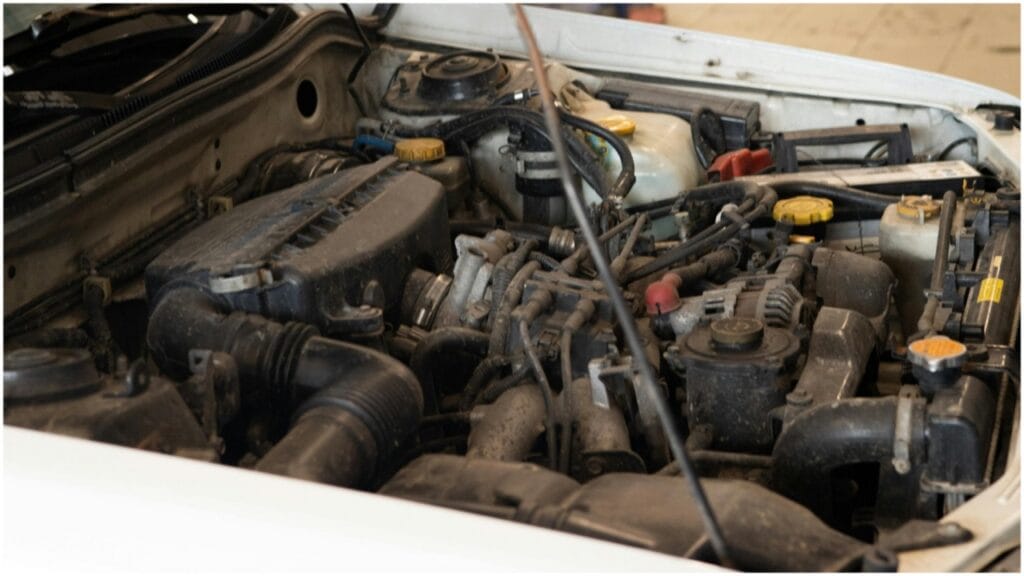This problem occurs when the air-fuel mixture inside the engine’s cylinders ignites prematurely, causing a knocking or pinging sound. If left untreated, it can lead to engine damage.
There are easy methods to stop knock engine treatment without requiring extensive repairs. Let’s dive into some practical ways to handle this issue.
Understanding Engine Knock
Engine knock happens when the air-fuel mixture doesn’t burn evenly. The combustion chamber experiences uneven pressure, leading to a knocking sound.
This typically occurs because of incorrect timing, low-quality fuel, or engine wear. The noise is caused by the fuel-air mixture igniting in multiple places in the cylinder.
When you hear this sound, addressing the problem quickly is essential to avoid further engine damage.
Causes of Engine Knock
Several factors can cause an engine knock. One common cause is using low-octane fuel in high-performance engines, which can cause premature ignition.
Another factor is excessive carbon build-up in the engine, which alters the shape and size of the combustion chamber. Poor performance or incorrect spark plug gaps can also contribute to knock.
Using Higher-Octane Fuel
Higher-octane fuel is one of the easiest ways to prevent or fix engine knock. Premium fuel is more resistant to detonation than regular fuel.
Switching to premium fuel can significantly reduce the chances of hitting if you own a high-performance vehicle or your car’s engine is prone to knocking.
Additives to Stop Engine Knock
Another straightforward solution is using fuel additives designed to stop engine knocking. These additives are formulated to clean carbon deposits from the combustion chamber, improve fuel quality, and reduce knocking.
Many products are available at automotive stores, and using them regularly can help prevent the onset of engine knock.
Cleaning the Fuel System
A dirty fuel system can contribute to engine knock, so cleaning it is essential for treatment. Over time, carbon deposits can accumulate on the fuel injectors and the combustion chamber.
When this happens, the engine’s performance suffers and knocking can occur. You can clean the fuel system using fuel injector cleaners or running a dedicated fuel cleaning treatment through it.
These products dissolve carbon deposits, ensuring that the fuel injectors deliver the right amount of fuel at the correct pressure.
Inspect and Replace Spark Plugs
Faulty spark plugs are another common reason for engine knocks. Worn or improperly gapped spark plugs can cause misfiring, leading to knocking.
Inspecting and replacing your spark plugs when necessary can help stop the engine knocking. Ensure that the spark plugs are the correct type for your engine.
You should verify that the gap is within the manufacturer’s recommended range. Regularly maintaining your spark plugs is a simple but effective method to prevent knocking.
Adjusting the Ignition Timing
Incorrect ignition timing is one of the primary causes of engine knock. If the timing is too advanced, the air-fuel mixture ignites prematurely, causing knocking. On the other hand, if the timing is too retarded, engine performance will be reduced.
Many modern vehicles have an electronic control unit (ECU) that adjusts ignition timing automatically. Older vehicles might require manual adjustments.
Engine Cooling System Maintenance

Overheating can exacerbate engine knock, so keeping the cooling system in top condition is crucial. If the engine runs too hot, the air-fuel mixture will ignite too quickly, causing knocking.
To prevent this, regularly check the coolant levels and ensure the radiator, hoses, and thermostat function correctly.
Reducing Engine Load
Engine knock can occur when the engine is under heavy load, such as when towing a heavy load or accelerating quickly.
Reducing the engine load can decrease the likelihood of knocking. Avoid heavy acceleration or towing loads that exceed your car’s specifications.
Checking for Engine Wear and Tear
If you’ve tried the above methods and the engine knock persists, it could signal internal engine damage. Worn-out piston rings, a damaged cylinder head, or other engine components can cause knocking.
If the issue persists, you should take your car to a professional mechanic for a thorough inspection. They may need to perform a compression test to check for internal damage. Early detection of engine wear can save you from costly repairs.
Preventing Engine Knock in the Future
Preventing engine knocks in the future requires regular maintenance. Keep up with oil changes, fuel system cleaning, and spark plug inspections.
Always use the recommended fuel for your vehicle, and don’t push the engine too hard under heavy loads. Regularly monitor the engine’s temperature and take preventive measures to keep it cool.
Conclusion
Engine knock is a problem that every car owner should address promptly to prevent further engine damage. Fortunately, the treatment options for engine knock are relatively easy and affordable.
Using higher-octane fuel, cleaning the fuel system, and adjusting ignition timing can eliminate the knocking sound and restore your engine’s performance.
Regular maintenance and early intervention can help preserve the health of your engine and prevent costly repairs in the future.

